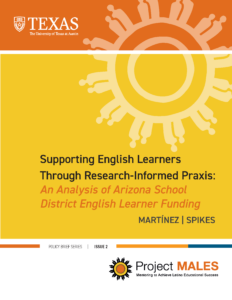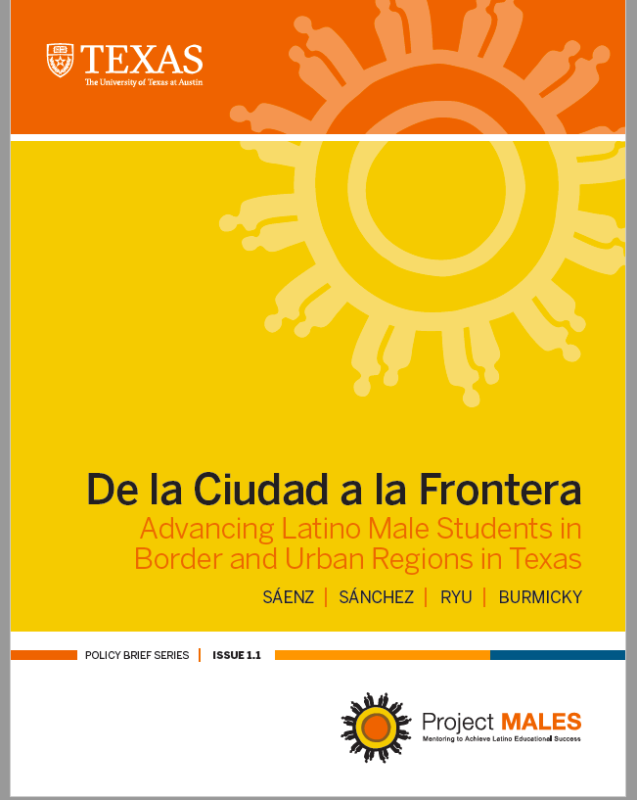Policy Briefs are 10-15 page brief that provides recommendations for policy based on personal experience and research that supports boys and men of color.
 In our second Policy Brief, Supporting English Learners Through Research-Informed Praxis: An Analysis of Arizona School District English Learner Funding, Martínez & Spikes critically examine how barriers in Arizona persist for English learners (ELs) and provide policy recommendations for equitable learning opportunities. They focus on three research questions: 1) What are the policies implemented during the years of the Flores v. Arizona/Horne v.Flores/Flores v. Huppenthal that directly impact EL education across the state?, 2) What is the relationship between targeted EL expenditures and the proportion of ELs across Arizona?, and 3) Did the policy resolutions endorsed by the Arizona courts at the culmination of Flores v. Arizona/Horne v. Flores/Flores v. Huppenthal effectively increase educational opportunity for ELs across the state?
In our second Policy Brief, Supporting English Learners Through Research-Informed Praxis: An Analysis of Arizona School District English Learner Funding, Martínez & Spikes critically examine how barriers in Arizona persist for English learners (ELs) and provide policy recommendations for equitable learning opportunities. They focus on three research questions: 1) What are the policies implemented during the years of the Flores v. Arizona/Horne v.Flores/Flores v. Huppenthal that directly impact EL education across the state?, 2) What is the relationship between targeted EL expenditures and the proportion of ELs across Arizona?, and 3) Did the policy resolutions endorsed by the Arizona courts at the culmination of Flores v. Arizona/Horne v. Flores/Flores v. Huppenthal effectively increase educational opportunity for ELs across the state?
 The inaugural Policy Brief, De La Ciudad a la Frontera: Advancing Latino Males in Border and Urban Regions in Texas highlights the educational patterns of Latino male students in select border and urban regions. The brief utilizes 8th grade cohort data tracked by the Texas Higher Education Coordinating Board, the Texas Education Agency, and the Texas Workforce Commission that follows Texas 8th graders for 11 years into their early career. The brief concludes with recommendations for policy applicable to researchers, policymakers, and educational leaders committed to advancing male students of color at the local, state, and national levels.
The inaugural Policy Brief, De La Ciudad a la Frontera: Advancing Latino Males in Border and Urban Regions in Texas highlights the educational patterns of Latino male students in select border and urban regions. The brief utilizes 8th grade cohort data tracked by the Texas Higher Education Coordinating Board, the Texas Education Agency, and the Texas Workforce Commission that follows Texas 8th graders for 11 years into their early career. The brief concludes with recommendations for policy applicable to researchers, policymakers, and educational leaders committed to advancing male students of color at the local, state, and national levels.
The Policy Brief Series aims to make benchmarking data readily available to practitioners, policymakers, and educational leaders to help impact institutional and state policy. These policy briefs stem from a collaboration with the Texas Higher Education Coordinating Board (THECB), which provided valuable data from across the state to examine educational outcomes for male students of color by Education Service Centers (ESCs) and county. For more information about these data, please visit our Research Digests publications.


